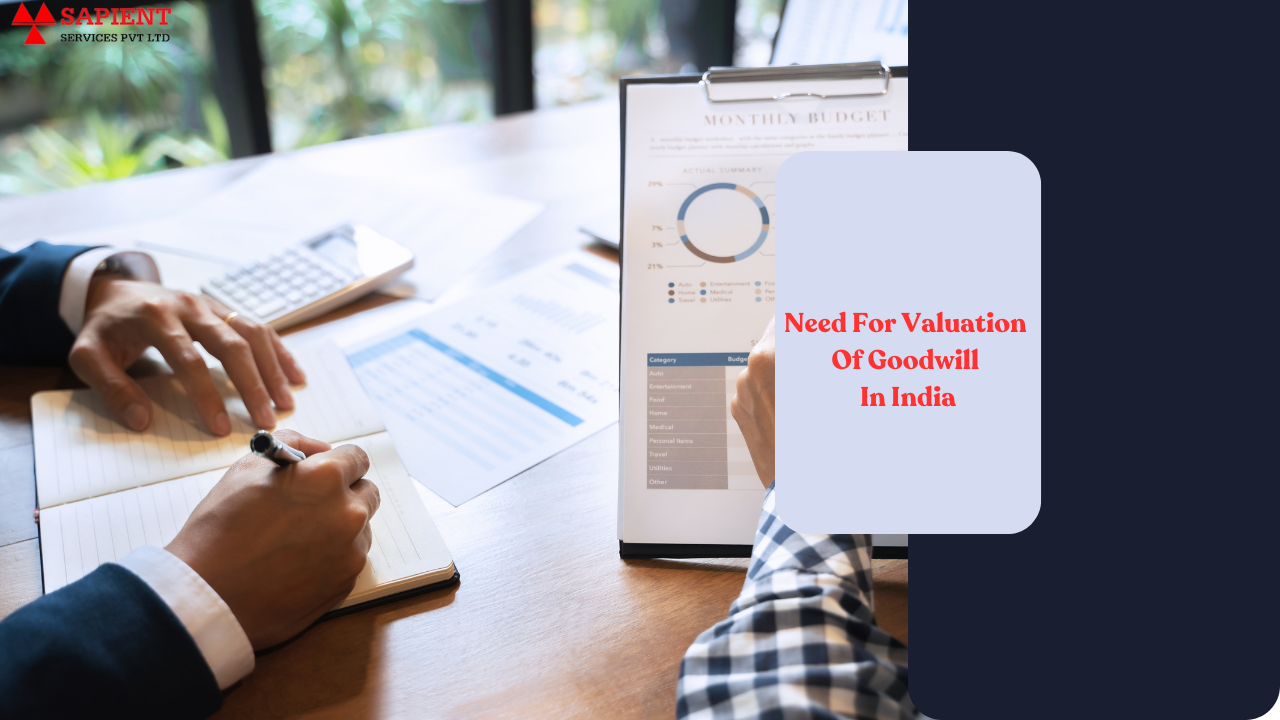
Goodwill is an intangible asset that represents the value of a business’s reputation, customer relationships, and other non-physical assets that contribute to its profitability. The need for valuation of goodwill in India is essential for various financial and legal purposes, including mergers and acquisitions, partnership changes, and financial reporting. Accurate valuations promise transparency, aid in strategic decision-making, and maintain compliance with regulatory standards.
Methods of Goodwill Valuation
Several methods are employed to value goodwill, each with its own approach and applicability:
- Average Profit Method: This method calculates goodwill by multiplying the average profit of past years by a certain number of years’ purchase. It’s straightforward and commonly used when profits are stable.
- Super Profit Method: Here, goodwill is determined by multiplying the super profit (the excess of actual profit over normal profit) by a specific number of years’ of purchase. This method is suitable when a business earns more than the expected return on its capital.
- Capitalisation Method: This approach involves capitalizing the average or super profit by the normal rate of return to determine the value of the business, from which the net tangible assets are deducted to ascertain goodwill.
- Annuity Method: Goodwill is calculated by considering the super profit as an annuity over a certain number of years and discounting it at a given rate of interest.
Each method has its advantages and is chosen based on the specific circumstances of the business.
Sapient Services’ Approach to Goodwill Valuation
Sapient Services employs a balanced approach to goodwill valuation, considering the unique aspects of each business. Their methodology includes:
- In-Depth Analysis: Evaluating the company’s financial performance, market position, and industry trends.
- Customized Methodology: Selecting the most appropriate valuation method or a combination thereof to suit the specific business context.
- Regulatory Compliance: Ensuring that the valuation aligns with Indian accounting standards and regulatory requirements.
This specific approach will guarantee that the valuation reflects the true economic value of the goodwill, providing stakeholders with reliable information for decision-making.
Impact of Indian Accounting Standards on Goodwill Valuation
In India, accounting standards significantly influence the process of goodwill valuation:
- IND AS 38 (Intangible Assets): This standard outlines the recognition, measurement, and disclosure requirements for intangible assets, including goodwill. It mandates that goodwill should only be recognized when acquired in a business combination and not internally generated.
- IND AS 36 (Impairment of Assets): According to this standard, goodwill is not amortized but tested annually for impairment. If the carrying amount exceeds its recoverable amount, an impairment loss must be recognized.
Adherence to these standards means that goodwill is accurately reported, maintaining the integrity of financial statements.
Challenges in Valuing Goodwill in India
Businesses in India often encounter several challenges when valuing goodwill:
- Subjectivity: Goodwill valuation involves subjective judgments, making it susceptible to bias.
- Market Volatility: Fluctuating market conditions can impact the assumptions used in valuation models.
- Regulatory Changes: Frequent updates in accounting standards and regulations require businesses to stay informed and adapt their valuation approaches accordingly.
Addressing these challenges necessitates a thorough understanding of valuation techniques, market dynamics, and regulatory frameworks.
The Imperative of Need for Valuation of Goodwill in India
The need for valuation of goodwill in India is crucial for several reasons:
- Strategic Decisions: Strategic decisions are crucial for the success of any business. Accurate valuation plays a significant role in informing mergers, acquisitions, and partnership agreements, allowing companies to make well-informed and strategic choices.
- Financial Reporting: Financial reporting is a pillar of transparency and trust in business operations. It ensures that financial statements reflect the true value of the company’s assets, providing stakeholders with a clear and accurate picture of the company’s financial health.
- Taxation: Taxation is a complex but necessary aspect of business operations. Proper valuation is essential for tax assessments and compliance, helping companies avoid penalties and ensuring they meet their tax obligations accurately.
Neglecting the Need for Valuation of Goodwill in India can lead to:
- Financial Misstatements: Financial Misstatements can have far-reaching consequences. Overstated or understated asset values can mislead stakeholders, leading to a loss of trust and credibility in the company’s financial reporting.
- Regulatory Penalties: Regulatory Penalties are a serious risk for companies that do not comply with accounting standards. Non-compliance can result in legal consequences, fines, and reputational damage that can harm the company in the long run.
- Poor Business Decisions: Poor business decisions can stem from inaccurate valuations. Companies that base their strategic choices on flawed valuation methods risk making suboptimal decisions that can have negative impacts on their performance and growth.
Therefore, the regular and accurate need for valuation of goodwill in India is indispensable for businesses aiming for sustainable success.
In conclusion, the valuation of goodwill in India is a complex yet essential process that underpins various financial and strategic aspects of a business. By employing appropriate valuation methods and adhering to accounting standards, businesses can maintain transparency, compliance, and informed decision-making. Sapient Services offers expert valuation services, providing businesses with accurate and reliable goodwill assessments tailored to their unique needs.





Leave a Reply